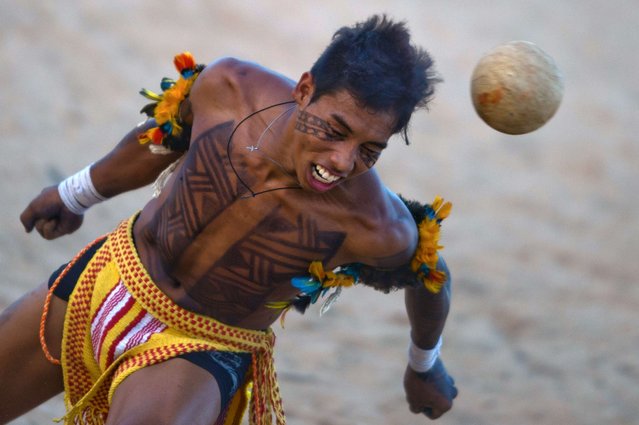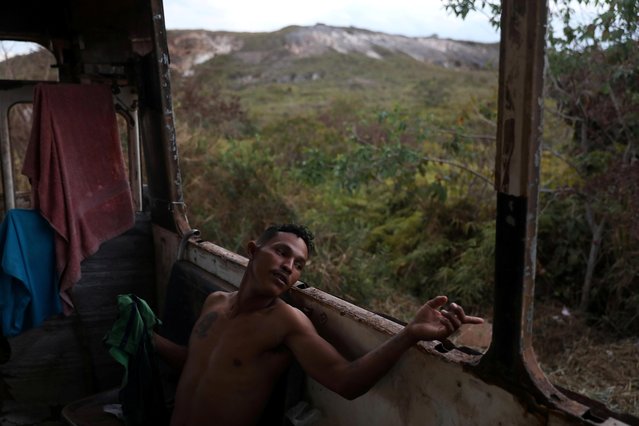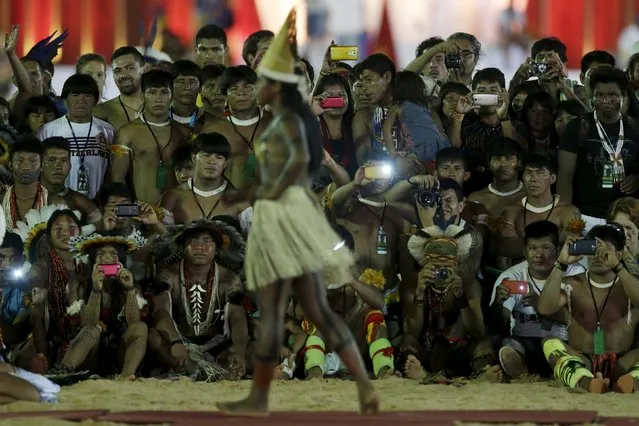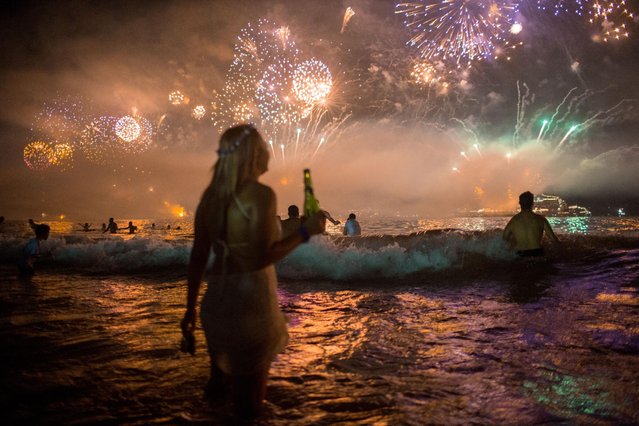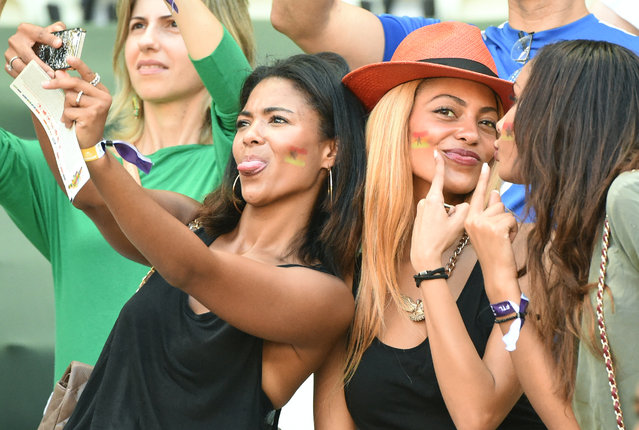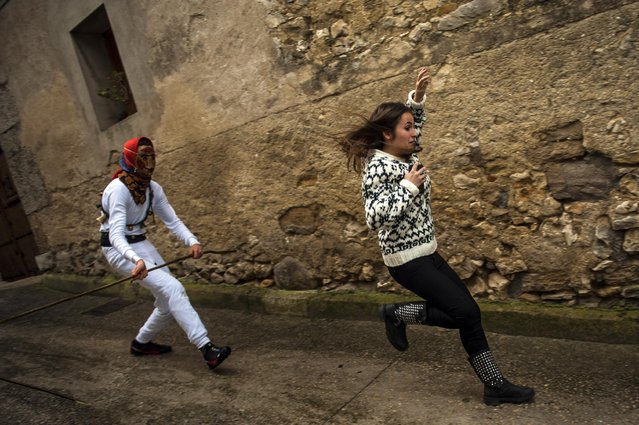
Competitors prepare backstage before the 2015 Brazil Miss and Mister Fitness contest in Sao Paulo, Brazil, June 18, 2015. Some 96 men and women from all across the country competed in the event. (Photo by Paulo Whitaker/Reuters)
20 Jul 2015 10:18:00,post received
0 comments

